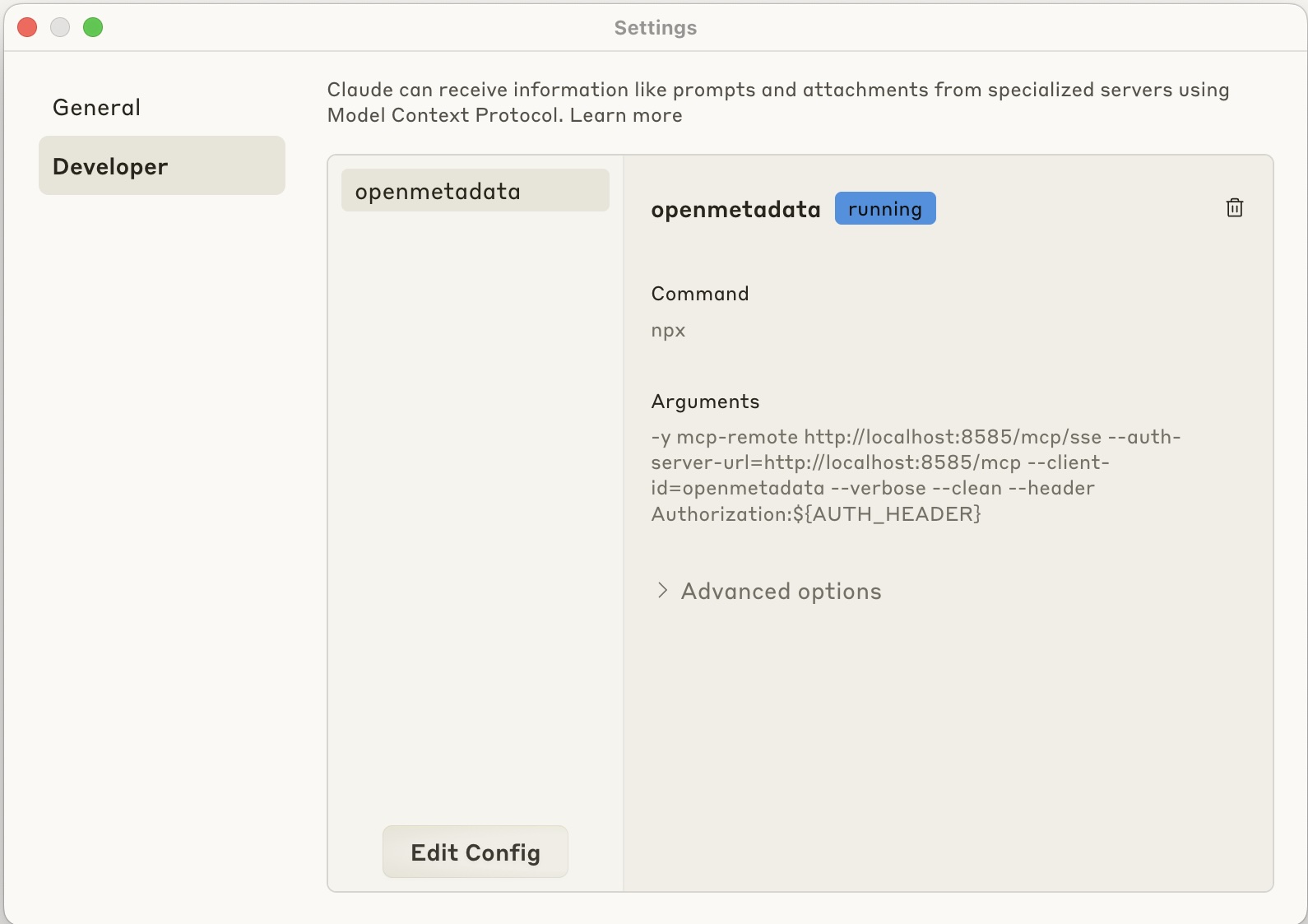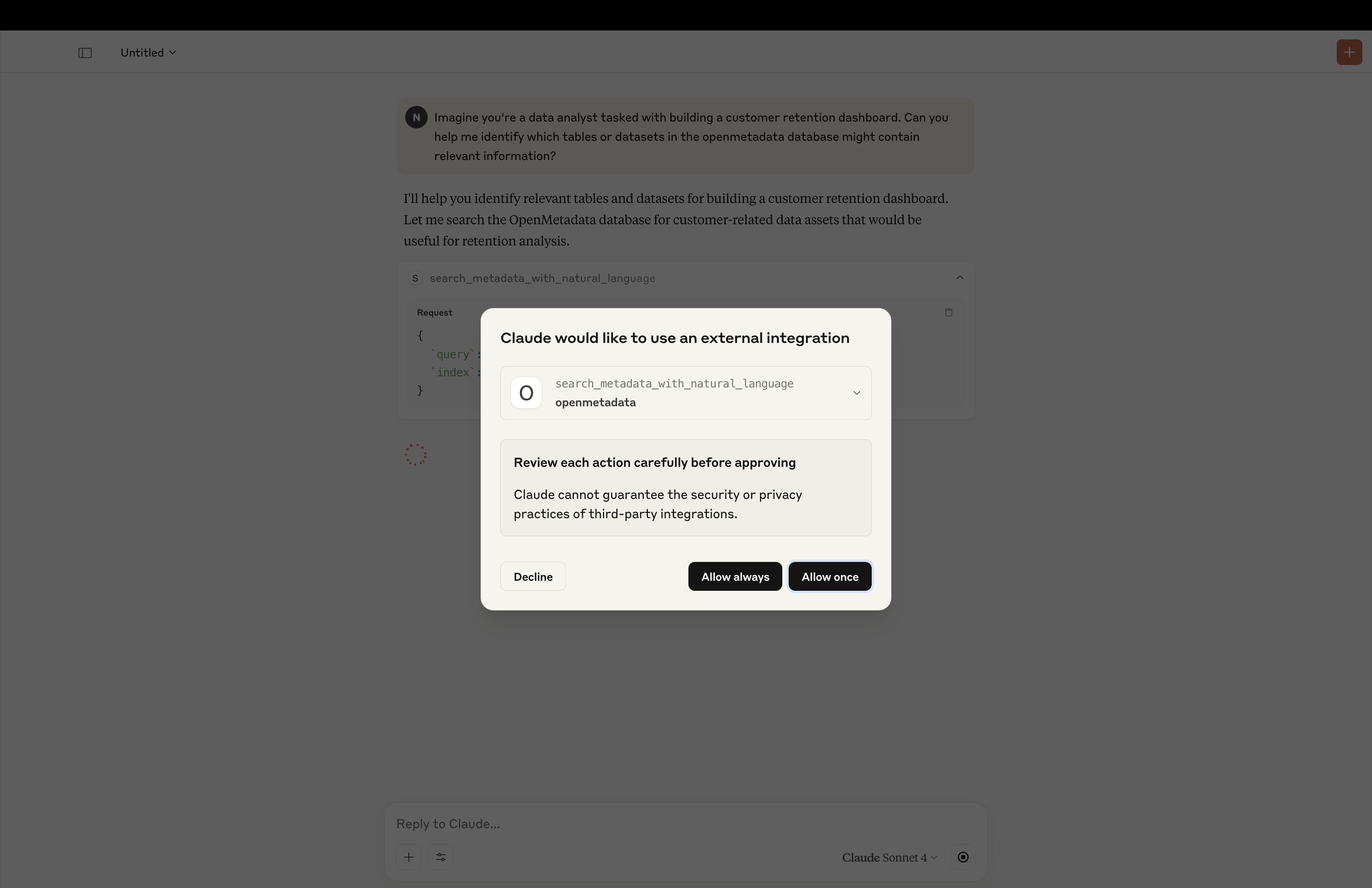Getting Started with Claude Desktop
Configure Collate's MCP Server to interact with Anthropic's AI assistant platform.
Prerequisites
For this guide, you will need:
- nvm and npx/node version 22
- OpenMetadata v1.8.0 or later - You can upgrade your version of Collate with this guide
- Claude Desktop
- Collate MCP Application and Personal Access Token
Adding your Collate MCP Server to Claude Desktop
This how-to guide uses the free version of Claude Desktop for macOS with Sonnet 4.
- Navigate to Claude Desktop's Settings, then select Developer and Edit Config. Paste the following into
claude_desktop_config.json
- Restart Claude Desktop. You should see your
openmetadataservice running

Collate MCP Server running in Claude Desktop
Prompt to read from Collate
This part of the guide assumes that you have assets in Collate that Claude can read, and that some of your data assets have references to customers. You can change the prompt accordingly and/or add data sources into OpenMetadata here.
Past the following prompt into Claude to have it read from Collate:
Claude will ask if it can use the external integration Collate, select Allow always. You may have to do this multiple times, once for each tool. Claude is now reading from Collate via its MCP Server!

Claude asking for permission to search Collate
For more sample use cases with MCP please check out our blog!
Reach out on Slack!
With MCP, we are finding new ways to use Collate all the time! Now that you have Claude and Collate configured to work together, think you've got a great new use case? Show us what you've got in Slack!